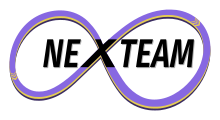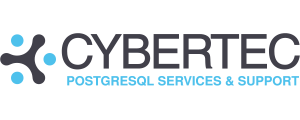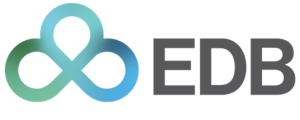Interview with Red Gate Software Limited
Find out more about our sponsor Red Gate Software Limited
Any views or opinions represented or expressed in this interview belong solely to the interviewee and do not necessarily represent those of the 2024 organization, PostgreSQL Europe, or the wider PostgreSQL community, unless explicitly stated.
Data is everywhere - and growing. Storing, managing and protecting it is an expensive, complex and sometimes risky business. That's why IT leaders need to work closely with database experts. Redgate provides end-to-end database DevOps, helping organizations to streamline their software development and get value from their data faster, on any database, anywhere.. Founded in 1999 in Cambridge, UK, Redgate has grown from a handful of database tools to a comprehensive portfolio of database development solutions. Today, more than 200,000 people around the world use Redgate software. Redgate's customers include small and medium-sized businesses from a wide range of industries including 92% of the Fortune 100. Redgate's success is based on a high level of investment in the simple and intuitive usability of its database software, as well as the consistent solution of complex and individual user problems. Many of its solutions, such as Flyway or SQL Compare, are now considered industry standards. Redgate itself has grown from a small start-up to a global company with over 500 employees and seven offices in the USA, Canada, Germany and Australia, as well as its headquarters in Cambridge.
What is your PostgreSQL centered product or service?
The tool that most people know, including many in the PostgreSQL community, is Flyway, and advanced schema migration application that can be used across more than 50 databases. Advanced features in Flyway Teams and Enterprise allow teams of developers to work with their PostgreSQL database as code. Flyway maintains a schema model of your database with each commit, generating consistent migration scripts as you develop, solving a myriad of common issues in your deployment pipeline. Redgate Test Data Manager equips your team to quickly provision development databases with production-like data that is secure. And Redgate Monitor provides industry leading monitoring, alerting, and historical performance tracking in a single pane of glass, supporting PostgreSQL, SQL Server, Oracle, and MySQL.
What is the most important feature in the latest PostgreSQL release?
Two things come to mind when thinking about PostgreSQL 16 and 17.
First, the continued work on predefined roles helps our clients more easily configure their PostgreSQL cluster with the right privileges so that tooling like Flyway and SQL Monitor can work effectively, but safely.
Second, the addition of incremental backups provides an essential capability to round out the backup and HA story with PostgreSQL.
Which PostgreSQL extension do you benefit from most, and why?
Two things come to mind regarding PostgreSQL extensions. First, managing extensions and extension versions is an important part of having consistent deployments with any PostgreSQL-backed application. Flyway Teams and Enterprise track extension versions and maintain this information in the schema model, ensuring that all schema comparison and script generation validate that right extension is being used across your development pipeline.
Second, Redgate Monitor relies on the venerable pg_stat_statements extension, among others, to help customers visualize and track the performance of application queries over time. By consistently sampling this data over time, Redgate Monitor helps clients quickly zero in on issues with their PostgreSQL clusters, saving valuable time in database management.
Second, Redgate Monitor relies on the venerable pg_stat_statements extension, among others, to help customers visualize and track the performance of application queries over time. By consistently sampling this data over time, Redgate Monitor helps clients quickly zero in on issues with their PostgreSQL clusters, saving valuable time in database management.
Where is the database world heading, how will PostgreSQL evolve?
According to data from Redgate’s 2024 The State of the Database Landscape report, 79% of businesses are now using two or more different database platforms, up from 62% in 2020 – and 40% are using four or more.
The overall popularity of traditional RDBMS juggernauts, such as SQL Server and MySQL, is wavering – and not just because of new, often open source players in the market.
Reasons for the increasing diversity include a wider range of use cases and different types of data now in play, but also a desire for more flexibility and, of course, cost savings. Against this backdrop, it’s no surprise PostgreSQL is thriving.
However, for those of us who use more than one database platform, the number one challenge we face is skillset requirements. Handling multiple databases requires a versatile skill set that spans various technologies, architectures, and operational practices. This is why Redgate invests so heavily in training and education for our database community: it’s not sustainable for businesses to constantly invest in new people against such a dynamic database landscape.
What can attendees expect from your booth at PGDay UK 2024?
Redgate will be showcasing its end-to-end Database DevOps portfolio which addresses the three key challenges database professionals face today: balancing efficiency, delivering innovation and ensuring business critical and sensitive data is compliant and protected.
The focus at PGDay UK will be on one of Redgate’s core products, Flyway, which helps to supercharge software delivery for database continuous integration and delivery – on multiple database platforms, including PostgreSQL of course.
Redgate Flyway gives teams the ability to version control database code and automate tests and releases. With the right tools and processes, teams can harness the power of automation and test data management to move faster and work smarter.
Technical specialists will be on hand to demonstrate the solutions. Redgate will also be running a raffle, with special Redgate-Postgres swag also up for grabs.
What makes your company a great place to work?
Redgate makes ingeniously simple software that helps teams get the most value out of any database, anywhere, and our company ethos is to focus on collaborative teams who engineer our products to reliably solve our customers’ problems. That’s one of our values – when our customers succeed, so do we. We recruit carefully to build a diverse, highly talented company of people all working together to achieve our goals of supporting the database community and helping IT professionals unlock value from their data. Our people work together in teams to make life easier for IT leaders, development and operations teams, increasing efficiency, reducing errors and protecting business-critical data. Check out our careers page for current opportunities!






